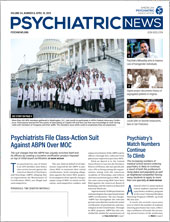Delirium—an acute state of brain dysfunction characterized by confused thinking, delusions, and agitated and restless behavior—is a pressing problem in hospitals, particularly among elderly patients, patients with cancer, and patients in intensive care units (ICU). Given the symptom profile, physicians typically treat delirium with antipsychotics and sedatives, but there is little evidence on how various medications stack up as clinical studies have produced inconsistent results.
A study published on February 27 in JAMA Psychiatry has attempted to provide some guidance, employing a methodology known as a “network meta-analysis,” to systematically compare data from 58 clinical studies testing delirium medications. Twenty of the 58 studies assessed treatments for delirium, and the other 38 studies assessed delirium prevention. The analysis suggested that a combination of haloperidol and lorazepam might be the best pharmacological strategy for treatment, while the sedative ramelteon provides the best prophylactic benefit.
The numbers seemed quite impressive; patients with delirium receiving a haloperidol-lorazepam combination were about 28 times more likely to show improvement than patients receiving placebo, while ramelteon cut the risk of delirium by over 90 percent.
However, experts caution that these findings are subject to a numerous caveats, and there is no simple strategy for managing delirium. “Meta-analyses have an important role in medical research,” said Daniel Blazer, M.D., M.P.H., Ph.D., a professor of psychiatry and behavioral sciences at Duke University, who worte an editorial accompanying this study. “Clinical trials are really expensive to run, so it’s worthwhile to combine and evaluate results from existing trials to find important data that might be hidden when looking at individual studies.”
Traditional meta-analyses group together smaller studies that are similar in design, thus creating one “jumbo-sized” study involving a single medication. The emerging approach of network-based analysis is more flexible in that it can compare studies of differing methodology, thus enabling comparisons of multiple disorders or medications.
The problem in this instance, Blazer noted, is that many medications were compared—13 in the treatment cluster and 17 in the prevention cluster. So while haloperidol-lorazepam and ramelteon came out on top, only one study supported both treatments.
“The underlying studies were both rigorous and well designed,” Blazer said. “But in medicine we should always be careful when the evidence is based on a single study.”
Blazer also highlighted that the haloperidol-lorazepam study specifically looked at delirium in patients with advanced cancer, and the positive outcomes may not translate to other patients.
“People who are recovering from surgery are not the same as patients in intensive care or those in cancer care,” echoed Babar Khan, M.D., an associate professor at the Regenstrief Institute and Indiana University School of Medicine. He pointed out that the study on haloperidol and lorazepam—an antipsychotic and benzodiazepine, respectively—was conducted to specifically assess the drugs’ ability to reduce agitation.
“The investigators were not really treating delirium; they were calming down the patients,” Khan said. “This could be important for a terminal cancer patient, but it’s not the desired outcome for every case of delirium. Context matters.”
Khan, who along with colleagues like Noll Campbell, Pharm. D., M.S., has been involved in a number of clinical trials on treatments for delirium in ICU patients (often with little success) told Psychiatric News that health care professionals should always consider nonpharmacological strategies first. These include keeping a patient properly oriented through repeated verbal and physical cues (for example, put familiar objects in sight), encouraging proper hydration and sleep hygiene, and promoting movement out of a bed as soon as possible. “These are evidence-based practices that work broadly, and without the risks posed by some of these potent medications,” he said.
Blazer also recommended nonpharmacological approaches but acknowledged that they do require a lot of time and extensive coordination between physicians and nursing staff. “There are many instances where such resources are not available and knowing which medication to give would be valuable,” he said. “Studies like this are helpful, but more data are needed.”
Researchers at Taiwan’s China Medical University and colleagues conducted the JAMA Psychiatry meta-analysis. The study was funded by grants from China Medical University; the Ministry of Science and Technology, Taiwan; and the National Health Research Institutes, Taiwan. ■
“Association of Delirium Response and Safety of Pharmacological Interventions for the Management and Prevention of Delirium: A Network Meta-analysis” can be accessed
here. The editorial, “Pharmacologic Intervention for the Treatment and Prevention of Delirium: Looking Beneath the Modeling” is available
here.

